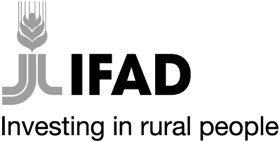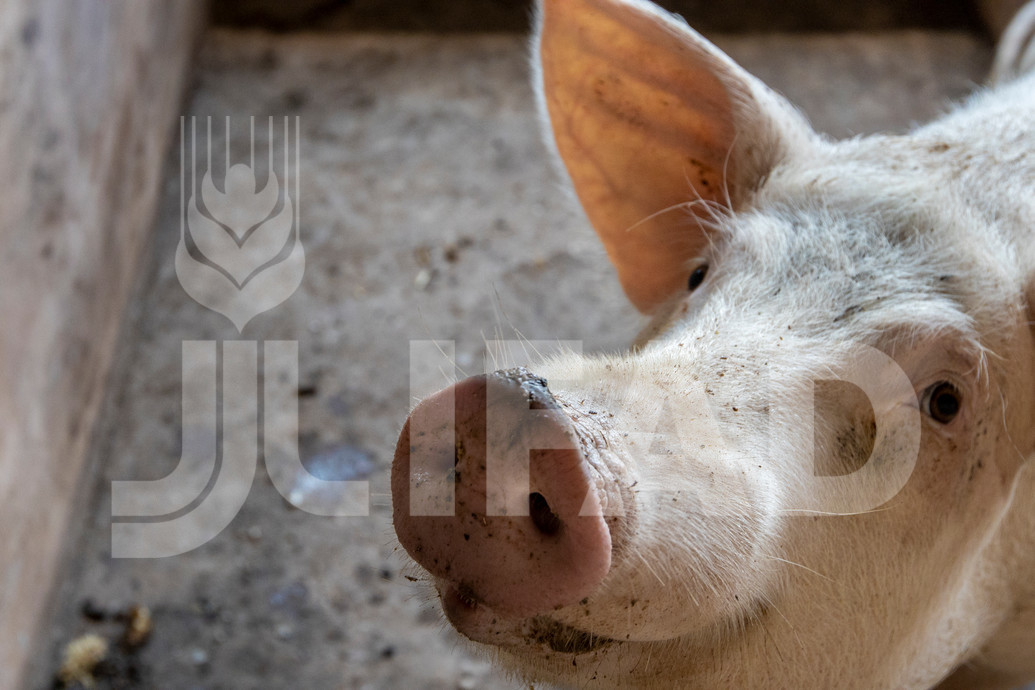| ID: | 83405 |
|---|---|
| Title: | Nigeria - Value Chain Development Programme (VCDP II) Phase II - November 2023 |
| Description: |
Cynthia Edeze tends dozens of pigs in the piggery she incorporated into her integrated Green Tech Farms enterprise in Ndieze community in Ebonyi State, Nigeria. The pigs are bred, reared, and fattened to to be sold and used for food. Cynthia Edeze, 35 years old, is a cassava seed entrepreneur from Ndieze community in the Izzi local government area of Ebonyi State in south-eastern Nigeria. She was selected by VCDP in 2017 as a project participant and trained in cassava seed production at the National Root Crops Research Institute (NRCRI) in Abbia. After her training, the project provided Cynthia with enough pro-Vitamin A fortified cassava stem and agrochemicals to plant one hectare of land. She has since expanded to ten hectares and today, is one of the major cassava seed producers in Ebonyi state and beyond. She has earned more than 3 million Naira (about US$ 3,800) selling cassava cuttings in 2023, and more than 5 million when including her profits from her integrated farming activities. “The local cassava variety I used to farm had a low yield of just 10 to 15 tonnes of cassava root per hectare. But with the improved variety I received from VCDP, I harvest up to 25 to 30 tons per hectare. While I formerly used the stalks as firewood, stem multiplication is now my major income source.” “IFAD VCDP extension agents monitored my farm activities from land preparation to planting the stems and harvesting the roots. They observed how I was using the inputs I received to make sure I was properly using all I had learned through the training,” told Cynthia. “With VCDP support, I started to make money and was able to pay my school fees and other academic needs, and I graduated in 2019. I was also able to build a small bungalow for my family, and I’ve even bought a motorcycle.” Cynthia has used her business know-how and earnings from selling cassava stems to slowly build her farming enterprise. She has established a piggery with several stalls and dozens of pigs, a fishery with six tanks for raising catfish, and has recently added snail farming, raising edible land snails for human consumption. She is perhaps proudest of the large garri processing facility she recently established, with the added bonus of using the cassava by-products, like the peel and the chaff, in her piggery to reduce the cost of feed. She uses kernels harvested from the oil palms that grow naturally on her farm to produce oil, which she uses for garri processing and also sells to make money. “I am pleased with this integrated farm, which not only provides a very good income, but that has enabled me to provide my family a nutritious, balanced diet. We eat snails and fish, which are very nutritious, pork and the Vitamin-A fortified cassava, as well as a variety of vegetables I grow on the farm.” With several years of experience and a wealth of knowledge, Cynthia is now pleased be sharing her accomplishments with others. She is currently collaborating with the NRCRI, where she started her own learning process, on a seed multiplication project for several cassava varieties, and working with the Ebonyi State University of multiplication of yam varieties. In just six years, Cynthia has transformed from her humble beginning as a subsistence farmer to an agrobusiness entrepreneur providing employment to others. “I am proud to be in agri-business. My advice to other young people is that they shouldn’t run away from it. It is very lucrative and gives more money than white collar jobs. With agri business, you can live a comfortable life. I don't work for other people now - I work for myself. I have ten people working for me today. All of them have contributed to my success.” The Value Chain Development Programme (VCDP), which started its activities in 2014, works in close coordination with local government across nine states—Anambra, Benue, Ebonyi, Enugu, Kogi, Nasarawa, Niger, Ogun, and Taraba—on developing cassava and rice value chains for smallholder farmers, rolling out development initiatives that aim to reduce post-harvest losses, strengthen food security and accelerate economic growth. Building strong public-private-producer partnerships (4Ps) has provided a solid pathway for reaching sustainable transformation in rural communities where agriculture is a mainstay of economic activity. VCDP helps households adopt sustainable and climate resilient practices, as well as dietary diversity that leads to better nutrition and health benefits. The project has benefited almost 100,000 rural people, in particular women and youth. The number of households living in poverty has decreased by almost 50 per cent, while agricultural income of more than 60 per cent of VCDP-supported beneficiaries has increased by 25 per cent. |
| Size: | 16.27 MB; 6480 x 4320 pixels; 549 x 366 mm (print at 300 DPI); 1714 x 1143 mm (screen at 96 DPI); |
| Show more details: | Andrew Esiebo |
| Copyright: | ©IFAD/Andrew Esiebo |
| Categories: | New from West and Central Africa |
| URL: | www.ifad.org |

